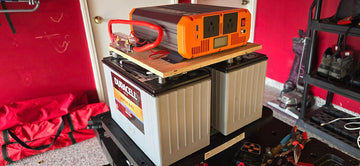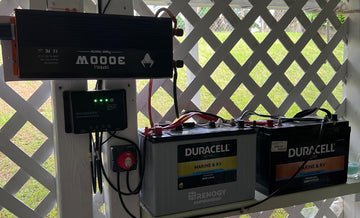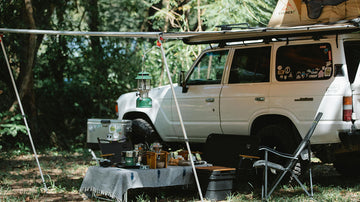If you're tired of watching your electricity bill go up year after year, you can install solar panels and stop relying on the national grid. But before making this decision, many people hesitate ‘How much money can I save with solar panels? In this article, we will walk you through the calculation of solar panel savings and discuss the factors that affect the savings of solar panels!
How can solar panels save you money?
Solar panels convert the sun's energy into electricity, creating free electricity for your home. This means that you don't have to buy electricity from an energy company every month, because most of the electricity comes from solar PV. This self-sufficient energy production can help you save money on your electricity bill.
Key points:
- Installing an average 6,000W kilowatt solar panel system anywhere in the country will save you about $1,500 a year on your electricity bill.
- Consider adding solar panels to your solar energy system so you can store excess energy during the day and use it at night or on cloudy days, increasing your savings.
- The government offers incentives to encourage the use of solar energy. These incentives can include tax credits, subsidies, or other rewards to help you save money on the cost of installing solar panels.
- Installing solar panels can increase property values. Potential buyers may be willing to pay a higher price for a home that already has a solar system installed.
- System costs have fallen significantly over the years, making solar energy a more affordable investment for many.
- Investing in solar panels is a long-term financial decision that offers both environmental and economic benefits that will pay for themselves over time.
How much can a solar system save me?
You can calculate your total solar savings by subtracting the amount you paid for solar (including tax credits) from the amount you would have paid for electricity. But in reality, panel efficiency, sunlight/climate, energy usage, etc. are all potentially influencing factors.
Calculate the cost of utility power.
The first step in working out how much you can save is to work out how much you spend on electricity each year. Check your electricity bill to see how much electricity you use on average each month. Then work out your annual bill (12 months) and multiply it by 25 years to get the lifetime cost of electricity.
For example, the average US household uses 10,791 kWh of electricity per year; multiply this by the national average rate of $0.14/kWh and you'll find that the average household spends $1,500 a year on electricity!
$1,500 * 25 = $37,500
37,500 is the cost of buying electricity from the grid over a 25-year period, which you can compare with the cost of owning solar panels over the same period to see if solar panels are worth it in the long run.
Cost of installing solar panels
Next, you need to determine the size of the solar system you need and the estimated cost of installing solar panels.
Now you know the size of the solar system you need to meet your needs. Work out how much electricity you use each month, bearing in mind that your consumption will be higher in months when you need to use heating or air conditioning. Assuming all your electricity comes from solar, if you use 5.7kW per day you will need a 6kW system.
The price of solar installation also depends on the size of the system, and the cost of solar panels including installation varies from state to state. The average cost of installing a 6000W solar panel is $3.00 per watt. This means that the average total cost of the system is around $18,000.
Today, many people are choosing to install their solar systems to save on labor costs and increase their savings significantly.
If you have purchased or taken out a loan for a solar energy system, you may be eligible for the Federal Residential Solar Credit. This tax credit allows you to claim a percentage of the cost of your solar photovoltaic (PV) system on your federal income tax. If you choose to finance your system through a power purchase agreement (PPA), the system owner will qualify for this tax credit and may pass it on to you in the form of a lower bill. In some cases, these third-party system owners may receive additional credits that are not available to homeowners, which can further reduce your bill.
Many states also offer incentives for rooftop solar customers. Local incentive programs, combined with federal credits, can add up to even more savings and help make your solar panels a worthwhile investment.
While tax credits and incentives vary by state and utility, the 30% federal solar tax credit applies to everyone. Based on the example above, it would cost $18,000 to install a 6kW solar panel. The 30% federal tax credit reduces the cost by approximately $5,400, for a total cost of $12,600. This system is known to save you $1,500 per year (solar installation cost - tax credits and other incentives) / (annual savings) = payback period (years).
$12,600 ÷ $1,500 = 8.4
(25-8.4) * $1,5000= $24,900
If we estimate the initial cost at around $12,600 (after various discounts), then at current average energy costs and average energy production, a solar investment could take around eight and a half years to pay for itself. Over a 25-year lifespan, you can save on energy costs for at least 12 years. With annual savings of $1,500, you could easily save $24,900 on your electricity bill over the lifetime of the system, not including inflation!
Every home's energy needs and solar system performance are different, so the final savings may vary slightly. Overall, however, your solar panels are likely to pay for themselves in the end and provide you with some net savings. As well as the financial benefits, you'll also be helping the environment by reducing your reliance on fossil fuels.
Below is a list of the average solar savings homeowners in the top 50 solar cities in the US could potentially achieve by purchasing a 6kW cash solar system for their home:


Factors that influence savings
Net metering policies
In recent years, net metering policies have begun to change in some jurisdictions. In particular, some utilities are moving to more complex formulas to control what homeowners are paid for selling energy back to the grid. This change could affect the rate of return on solar systems, reducing the overall potential savings from solar.
It's important to be aware of your local net metering policies and any changes that may be under consideration. You should also be aware of current time-of-use tariffs, which can affect what utilities charge for peak and off-peak energy use, as well as what they pay for energy production.
For this article, we will assume that the system is purchased outright. Entering into a solar lease or PPA (Power Purchase Agreement) can significantly affect the value of solar energy and therefore reduce your overall ROI. This is because you will not be able to claim any credits or incentives under these plans. In addition, these contracts include rising interest rates that can gradually erode your energy bill savings. Entering into a lease or PPA can reduce or completely wipe out your savings, depending on the terms of the contract.
In some cases, combining solar panels with solar cells can save more on electricity costs than using solar panels alone. The advantage of this combination is that the solar cells can store daytime solar power for use at night or on cloudy days. Although there is an additional cost to installing batteries, this can add to your savings over time.
Climate and sunshine hours
The amount of sunlight your site receives and the local climate will affect the amount of electricity your solar panels can produce. Some areas receive more sunlight than others, which means the system will operate at peak production for more hours per day. Systems in sunny areas will produce more electricity each day, making them more valuable.
Replacement of solar system components
You may need to consider the cost of replacing solar parts over the life of your solar system. Solar panels are guaranteed for at least 20 years, so you don't need to worry about the cost of replacing them. However, you will need to check the warranty of other parts, especially the inverter.
Also, if you decide to install solar panels on your roof, you will need a strong roof. If your roof is in poor condition, you may need to replace it before installing solar panels. Replacing the roof beforehand is an additional expense that can eat into your savings and needs to be factored into the cost.
Homeownership
The example above assumes that you own your home and intend to live there for 25 years. Installing a solar system will increase the value of your home, and if you plan to sell your home, you may be able to recoup some of your investment. You may not get a full return on your investment in a solar system.
Conclusion
In the long run, solar energy costs less than buying electricity from a utility company. If you hire someone to install your system, the payback period is around 8-9 years. Despite the relatively long payback period, you still have the opportunity to save a lot of money on your energy bills throughout your lifetime. If you choose to install the system yourself, the payback period is reduced to 5-6 years due to the savings in installation costs. This means that you can recoup the cost of your solar system much quicker and start enjoying the savings on your energy bills. Taking all of the above factors into account, you can estimate the potential savings for your specific situation.
















